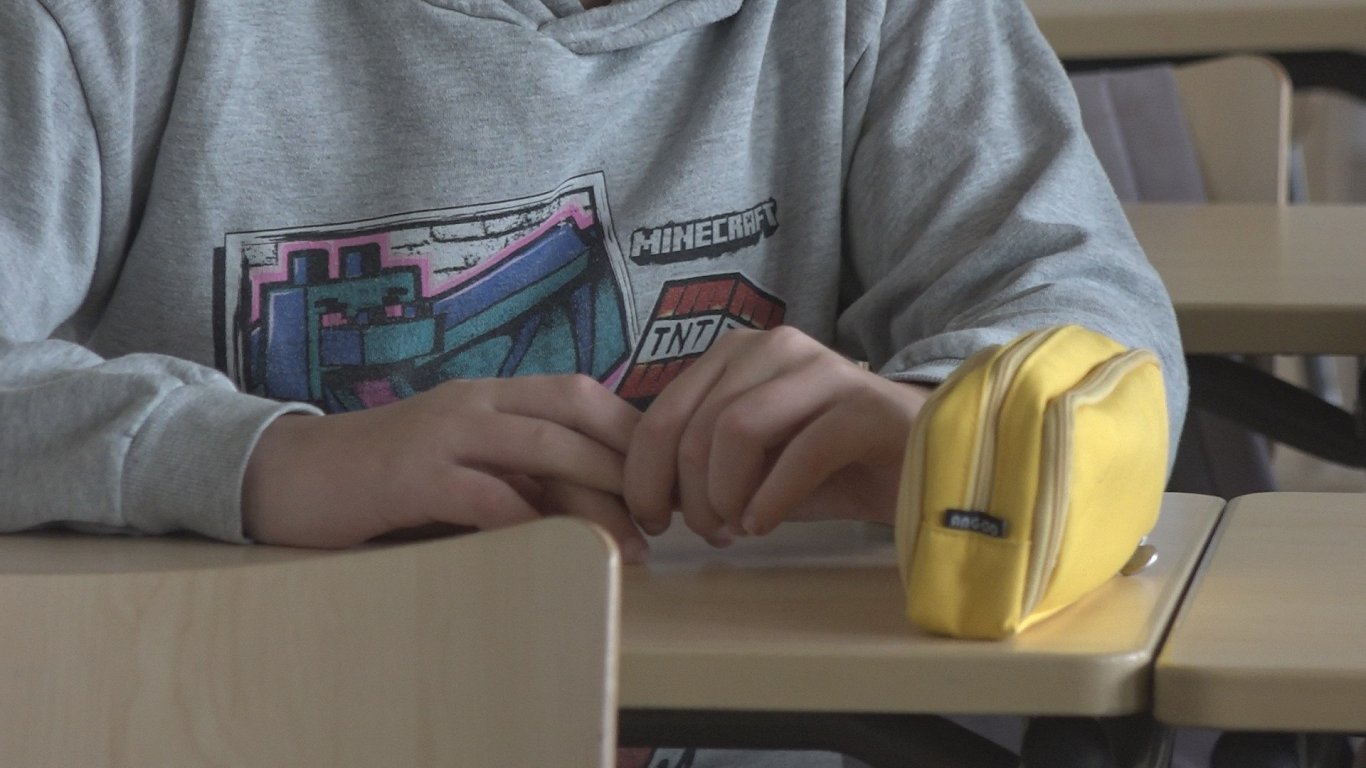In order to gain insight into how ready the education sector is for war or military invasion, Latvijas Radio first addressed parents of children to understand whether they are informed and whether it is clear to them what will happen to their children in schools and kindergartens in such crisis situations.
Lauris Bokišs, a board Member of the society "Fathers" and father of four children, who incidentally attend four different educational institutions, admitted he had not received any information from any school or kindergarten at this time about how the authorities would act.
"I also managed to ask several fathers in that circle whether there was anything known, whether there was anything heard. Everyone replies as one that nothing has been heard, nothing has been said at any school or kindergarten.
"One dad said there are regular civil protection exercises, so children know how to navigate the school safely and how to use escape exits. Another dad wrote back that the nursery had evacuation exits and there was a bomb shelter, but there was no real clarity for anyone. Right now, what we can do is read the leaflet, be clear about ourselves and family and individual safety, and then look beyond that," Bokišs said.
Aino Salmiņš, councilor of the Latvian Association of Local and Regional Governments, explained that local government civil protection plans should include information regarding the actions of educational institutions in crisis situations, including notification and evacuation.
Despite the need for plans, there is insufficient communication about them at the local, public, and national level.
Salmiņš pointed out that it is not enough that such a plan exists because it will not be enough in crisis situations, so it is essential to organize training so that people – educational institutions, children, and also parents – know what to do and how to do it.
Latvian Radio also contacted several heads of schools and kindergartens.
Addressing many of Pierīga's kindergartens, most of them publicly declined to speak, pointing out that whether kindergartens are ready for threats is sensitive information; pointed all responsibility to the municipality, stating that they cannot draw up their own plans; honestly admitted that they did not know what he would do at this time; or mentioned that there was too much work and they could not give an interview; or just didn't want to talk about it.
School principals were also reluctant to speak publicly about how schools would act in the event of war or military invasion. Many mentioned that no action plans existed or were emerging; that they would not speak publicly about it; one of the principals of a Riga school even pointed out that he believes it is more of a fashion thing right now, so he does not think that the plan would be necessary.
Māris Brasla, principal of Riga State Gymnasium 1, initially agreed with the interview, noting that the school is already developing a plan, but when the interview was received, he did not answer any more calls.
But Latvian Radio managed to talk to the principal of Ludza High School, Gunārs Strods, who said that the school had implemented algorithms provided by the State Security Service for handling crises.
The school has also repeatedly informed pupils and parents, as well as conducting evacuation training at the start of each school term.
The principal said that there is currently no separate plan, only the local government Civil Protection Plan, but so far the school has successfully followed the guidelines provided by the State Security Service.
According to the Ministry of Defense, each educational institution should provide its own algorithm for the crisis situation, including in the event of a military crisis, establishing its own institution's crisis action plan, identifying and harmonizing in a timely manner the necessary assistance and resources that should be provided by the local government and the responsible services in a crisis situation, as well as synchronizing the measures and actions specified for crisis situations with the local civil protection plan, reaching out to local governments.
On the other hand, if educational institutions were to cease activities in the event of a military threat, the Ministry of Education and Science would need to identify the resources of the sector, such as the vacated premises, which could accordingly be used by the National Armed Forces for the performance of their tasks.
The question is – if these plans are drawn up, the information is clear and the action is known, why have educational institutions not only failed to communicate with parents about it but also avoided saying publicly that all this has already been resolved?
The education sector is currently poorly prepared for a military threat, concludes Latvian Radio.

























